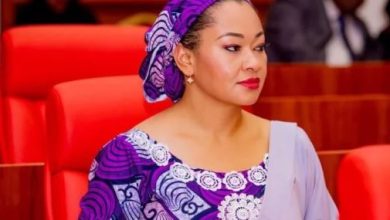Nigeria must Shun Borrowing and Turns to Domestic Resources for 2024 Budget- Wale Edun

Nigeria’s Minister of Finance and Coordinating Minister for the Economy, Wale Edun, has declared that the country will not rely on borrowing to fund the 2024 budget. Instead, the government will prioritize generating adequate revenues domestically to reduce its reliance on debt.
Edun made these remarks during a recent appearance before the joint Senate Committee scrutinizing the 2024-2026 Medium Term Expenditure Framework and Fiscal Strategy Paper (MTEF/FSP). He emphasized that Nigeria’s current high deficit financing cannot be sustained through further borrowing.
“Clearly, the environment that we have now, internationally as well as nationally, we are in no position to rely on borrowing,” Edun stated. “We have an existing borrowing profile. Our direction is to reduce the quantum of borrowing or intercept deficit financing in the 2024 budget.”
READ ALSO: Nigeria to Focus on Internal Resources to Reduce Debt Burden
The minister explained that the global economic climate, characterized by rising interest rates in developed countries, makes foreign borrowing an unattractive option for Nigeria. He pointed out that accessing loans would be excessively expensive, placing a strain on the country’s finances.
Edun advocated for increased investment in infrastructure as a more viable strategy for boosting revenue generation. He stressed that government spending needs to be expanded, particularly in infrastructure development, to stimulate economic growth and enhance tax collection.
READ ALSO :Tinubu secures multi-billion dollar funding from IDB
“Government needs to not just maintain its activity, it needs to spend more,” Edun asserted. “If you look at government spending and the budget as a percentage of GDP, ours is one of the lowest being 10 per cent.”
The minister’s comments align with the government’s broader efforts to mobilize domestic resources and reduce dependence on foreign borrowing. This approach involves strengthening tax collection, enhancing revenue generation from state-owned enterprises, and promoting private sector participation in infrastructure projects.
The shift away from borrowing as a primary funding source for the 2024 budget signals a significant policy change for Nigeria, reflecting the government’s recognition of the need for sustainable economic management. By emphasizing domestic resource mobilization, Nigeria aims to achieve fiscal stability and foster long-term economic growth.
Source: Guardian Newspaper





